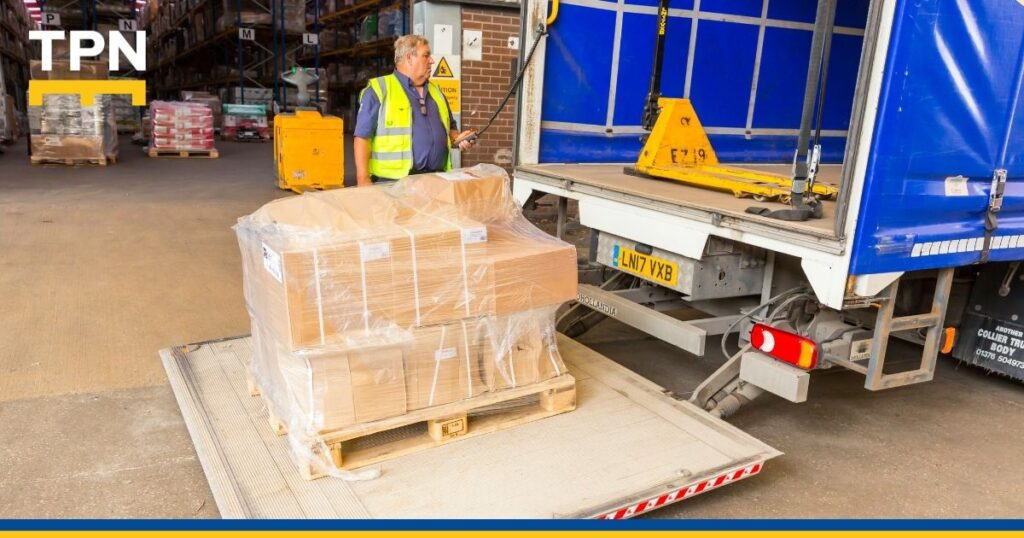TPN first to introduce tail-lift surcharge
22nd June 2021

The Pallet Network (TPN) is introducing a per-pallet surcharge for all tail-lift deliveries, as of 1st August 2021, in order to protect driver safety, service levels and the profitability of its partners.
The network is the first in the UK sector to take the courageous step of recognising the extra costs involved with tail-lift deliveries, and the levels of investment required of network partners.
The surcharge follows the HSE-endorsed RHA Tail-lift and Pallet Truck Guidance Document which was published in May 2021.
TPN MD Mark Kendall says: “We are committed to safe and sustainable business. That means that service offerings have to be matched with appropriate pricing to ensure continued investment and profitability.
“The UK pallet networks are being asked to do more tail-lift deliveries, particularly to residential addresses, than ever before but the sector has never addressed the price implications of this. Our commitment is to our partners’ success in terms of service, safety and profitability and so it is incumbent upon us to take the lead.”
The surcharge is designed to address the following:
- The need for drivers to complete dynamic risk assessments at every site
- The need for extra investment in driver training
- Partner investment in electric pump trucks
- To allow partners to adapt the original B2B model for consumer deliveries
It is essential to invest to improve the working conditions for drivers who are being asked to do increasingly difficult work, says Kendall: “Driver retention is a critical factor for our partners and we need to ensure that drivers are equipped with the best tools for the job.
“The sector as a whole has been unwilling to price tail-lift deliveries in a sustainable manner because they fear losing volume. However, TPN has always operated on the basis of quality, not volume.
“We believe customers will understand this change in pricing, and ensure that every tail-lift delivery is necessary and is to a suitable location. TPN is committed to service resilience and sustainable business and this is a necessary step in ensuring both.”
TPN was also the first in sector to incorporate the driver checklist for tail-lift deliveries into its ePOD application within a week of the guidance being released.
According to the Association of Pallet Networks, residential deliveries grew to 18% of pallet volume overall in 2020. TPN has always had a lower level of B2C work than the sector average, but stresses that it is not only home deliveries which require tail-lifts.
“There is a danger of creating a false correlation between B2C and tail-lift deliveries. Any business without a formal and FLT-equipped delivery site often requires a tail-lift delivery,” says Mark.

